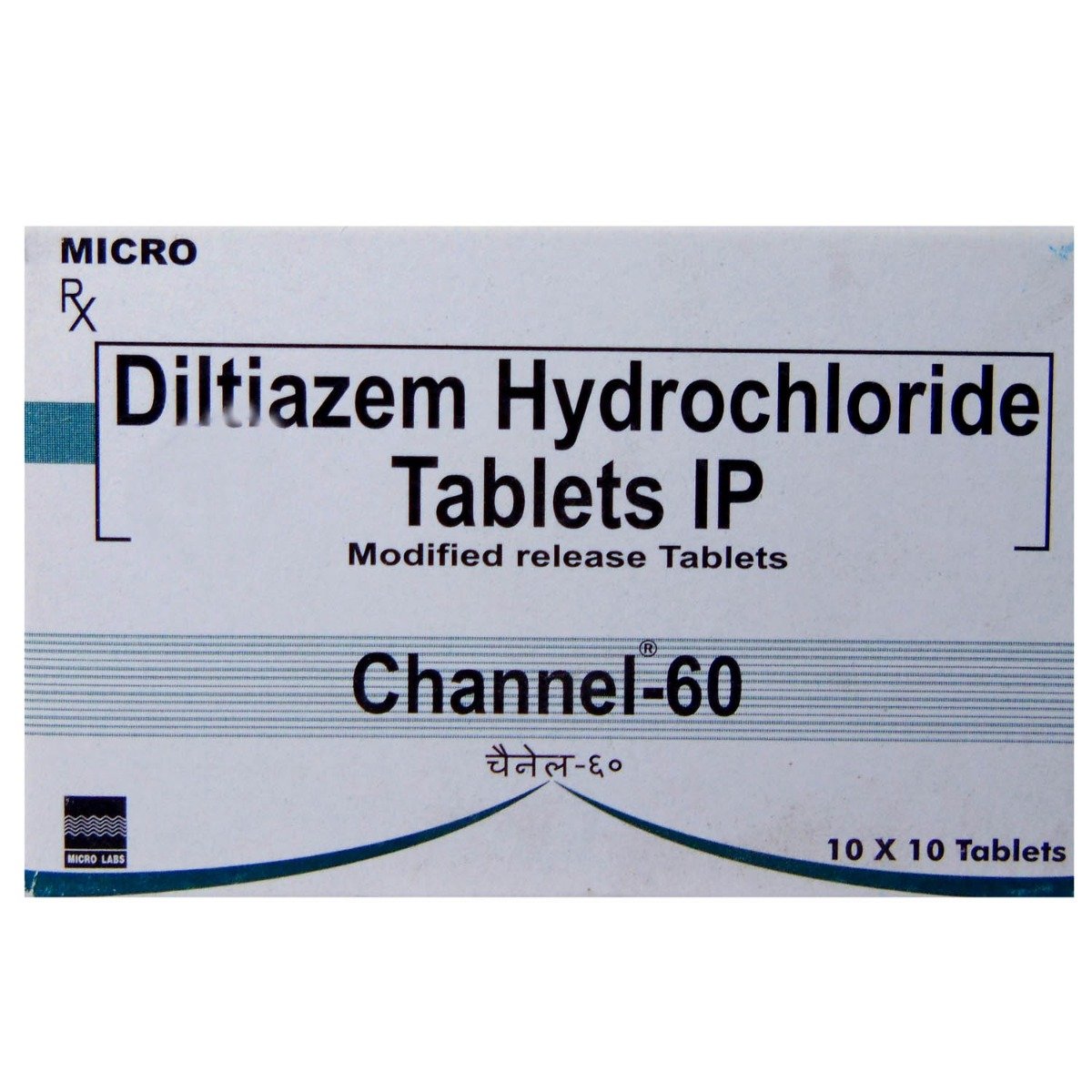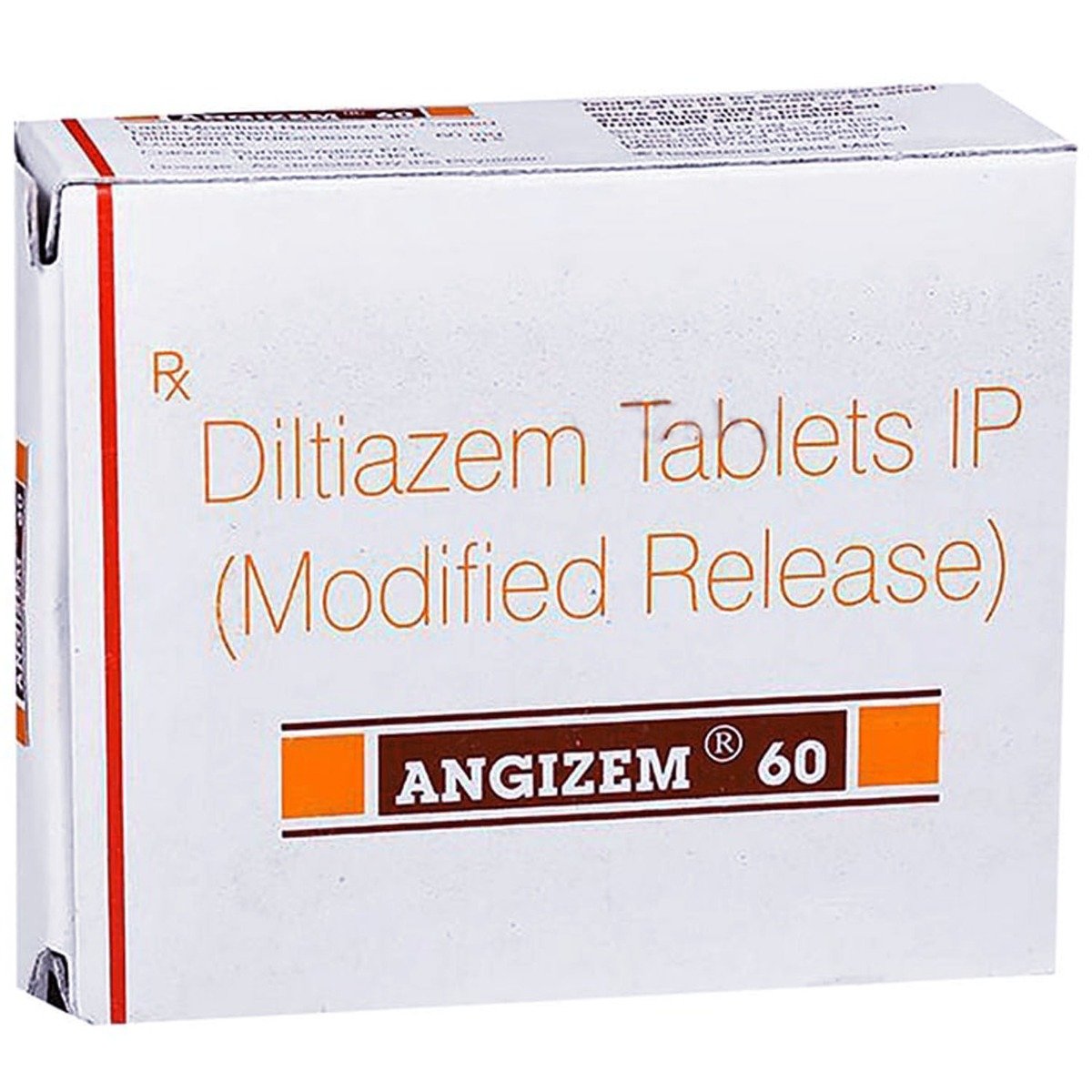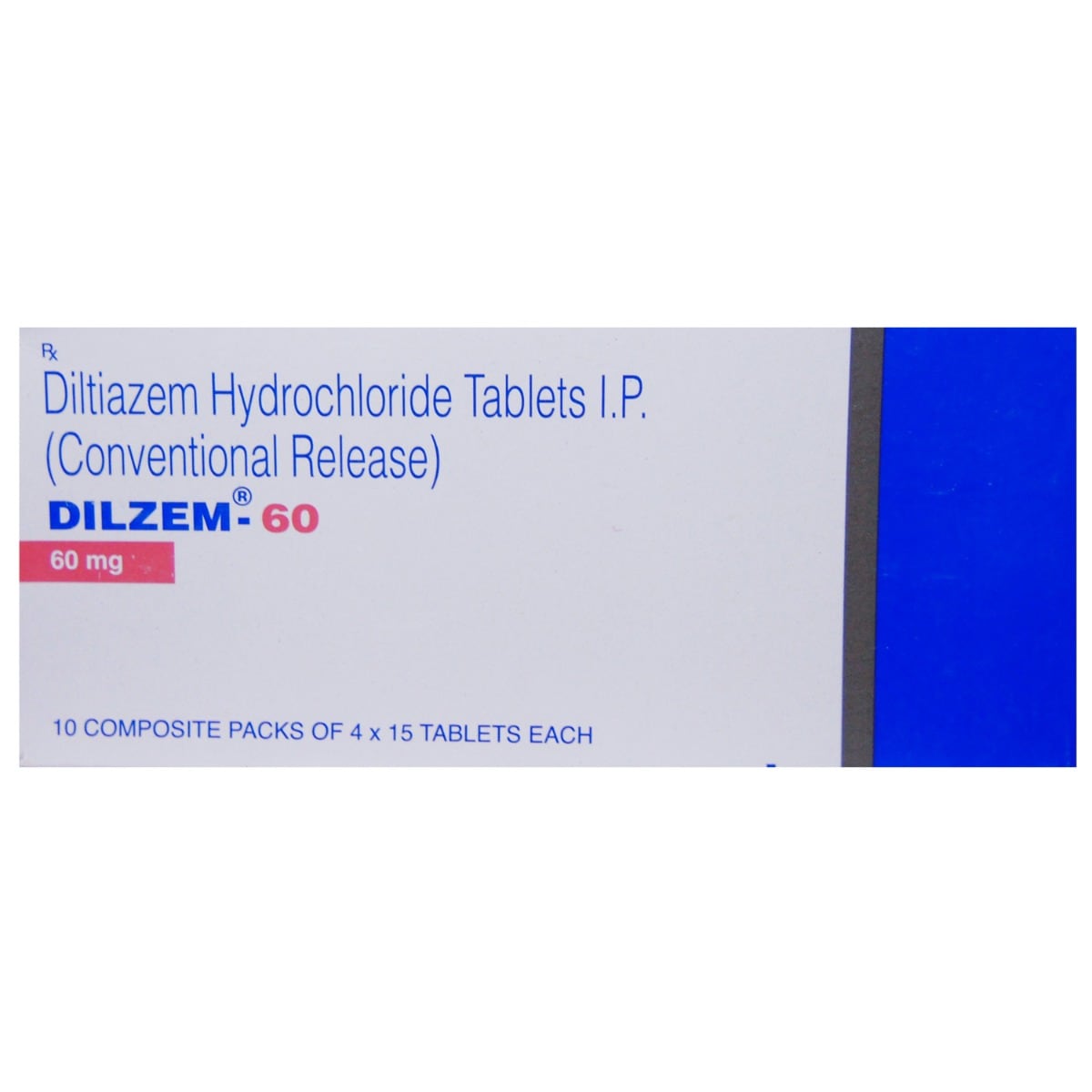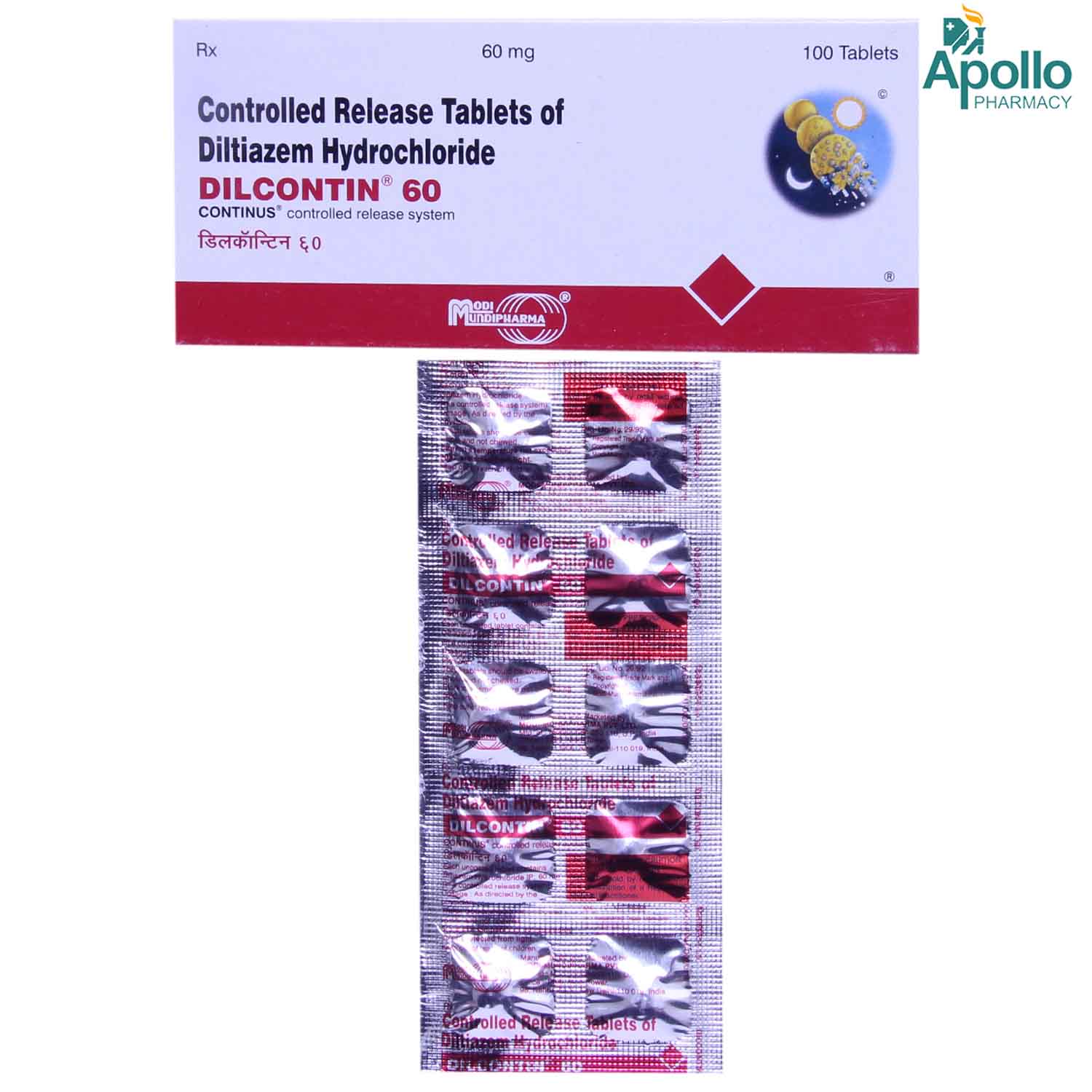DTM 60 MG FC TABLET 10'S
MRP ₹39.96
(Inclusive of all Taxes)
₹6.0 Cashback (15%)
Provide Delivery Location
Online payment accepted
 Prescription drug
Prescription drugWhats That
Composition :
Manufacturer/Marketer :
Consume Type :
Expires on or after :
Return Policy :
NPPA :
About DTM 60 MG FC TABLET
DTM 60 MG FC TABLET belongs to the group of anti-hypertensive medicines called 'calcium channel blockers' used to treat mild to moderate hypertension (high blood pressure). It is also indicated in the management of chronic stable angina and angina due to coronary artery spasms. High blood pressure is a condition in which the blood exerts increased pressure on the walls of blood vessels leading to hypertension. Angina or chest pain occurs due to reduced blood flow to the heart, which is caused by narrowing or blockage of the heart's arteries (coronary artery).
DTM 60 MG FC TABLET contains 'Diltiazem' which works by relaxing the blood vessels in the heart, thereby reducing the raised blood pressure. DTM 60 MG FC TABLET eases anginal chest pain by preventing the narrowing of blood vessels and dilating the coronary arteries. As a result, DTM 60 MG FC TABLET helps treat/prevent high blood pressure and angina.
Take DTM 60 MG FC TABLET with or without food. You are advised to take DTM 60 MG FC TABLET for as long as your doctor has prescribed it for you depending on your medical condition. In some cases, you may experience certain common side effects such as swelling in the hands, feet, and ankles, headache, dizziness, palpitations, constipation, and indigestion. Most of these side effects do not require medical attention and will resolve gradually over time. However, you are advised to talk to your doctor if you experience these side effects persistently.
Regular monitoring of blood pressure, electrolyte levels and kidney functioning is advised while taking DTM 60 MG FC TABLET . DTM 60 MG FC TABLET may cause dizziness, so drive only if you are alert. Avoid taking DTM 60 MG FC TABLET if you are pregnant or breastfeeding; talk to your doctor, he/she may prescribe you an alternate medicine. DTM 60 MG FC TABLET is not recommended for children as efficacy and safety have not been established. If you are due to undergo any surgery or dental procedure, inform the doctor that you are taking DTM 60 MG FC TABLET . Keep your doctor informed about your medical history and medications to rule out any side effects/interactions.
Uses of DTM 60 MG FC TABLET
Directions for Use
Key Benefits
DTM 60 MG FC TABLET belongs to the group of anti-hypertensive medicines called calcium channel blockers used to treat mild to moderate hypertension (high blood pressure). It is also indicated in the management of chronic stable angina and angina due to coronary artery spasms. DTM 60 MG FC TABLET works by inhibiting the movement of calcium ions across the heart muscle and smooth muscle linings of the blood vessels, thereby relaxing and widening the narrowed blood vessels making it easier for the blood and oxygen to reach the heart. This, in turn, helps in lowering the blood pressure and the risk of having a heart attack or stroke. DTM 60 MG FC TABLET eases anginal chest pain by preventing the narrowing of blood vessels and dilating the coronary arteries.
Storage
Drug Warnings
Do not take DTM 60 MG FC TABLET if you are allergic to any of its contents, if you have/had low blood pressure, heart failure, low pulse rate, or if you are taking dantrolene (muscle relaxant), ivabradine (used to treat heart failure), or if you are currently in shock (reduced blood flow to organs). Inform your doctor if you have/had diabetes, liver or kidney problems, porphyria (a rare disease of the blood pigment), myasthenia gravis (muscle problems), heart problems, or constipation. DTM 60 MG FC TABLET may cause mood changes and depression in some people. Consult your doctor immediately if you think you are affected. DTM 60 MG FC TABLET is not recommended for use in pregnant women, breastfeeding mothers and children.
Diet & Lifestyle Advise
- You are advised to consume low salt and low-fat diet while taking DTM 60 MG FC TABLET .
- Regular exercise is also recommended to complement treatment with DTM 60 MG FC TABLET .
- Eat a diet rich in whole grains, vegetables, fruits.
- Avoid smoking and alcohol consumption.
- Maintain a healthy weight with proper diet and exercise.
- Managing stress with meditation, yoga, massage would also help in treating high blood pressure.
Side Effects of DTM 60 MG FC TABLET
- Swelling in the hands, feet, and ankles
- Headache
- Dizziness
- Palpitations
- Constipation
- Indigestion
Habit Forming
Therapeutic Class
All Substitutes & Brand Comparisons
RX
Out of StockDiltime 60mg Tablet
Zydus Cadila
₹29.31
(₹2.64 per unit)
26% CHEAPERRX
Out of StockDiltilong 60mg Tablet
₹34.9
(₹3.14 per unit)
12% CHEAPERRX
Out of StockDilcor 60mg Tablet
₹36.7
(₹3.3 per unit)
8% CHEAPER
Author Details
We provide you with authentic, trustworthy and relevant information
FAQs
Drug-Drug Interactions Checker List
- DANTROLENE
- IVABRADINE
- SIMVASTATIN
- ATORVASTATIN
- LITHIUM
- WARFARIN
- ASPIRIN
- APIXABAN
- RIVAROXABAN
- THEOPHYLLINE
- METOPROLOL
- SALMETEROL+FLUTICASONE
- FORMOTEROL+BUDESONIDE
Special Advise
- Regularly monitor blood pressure levels to prevent hypotension (low blood pressure).
- Get up slowly while rising from a lying or sitting position as DTM 60 MG FC TABLET may cause light-headedness.
- Women of child-bearing potential must use effective contraception while on treatment with DTM 60 MG FC TABLET .
- To treat your condition effectually continue taking DTM 60 MG FC TABLET for as long as your doctor has prescribed it. Try not to stop taking it on your own as it may cause a sudden increase the blood pressure, chest pain or heart attack.
- Your doctor may advise you to get regular tests while taking DTM 60 MG FC TABLET if you have kidney and liver impairment.
Disease/Condition Glossary
High blood pressure (hypertension): It is a condition in which the blood exerts increased pressure on the walls of blood vessels leading to hypertension. This condition can lead to hardened arteries (blood vessels), decreasing the blood and oxygen flow to the heart. Raised blood pressure can cause chest pain (angina) and heart attack. Additionally, high blood pressure also causes brain damage (stroke) and kidney failure. Symptoms of high blood pressure include headache, dizziness, nose bleed, changes in vision, chest pain, weakness and dyspnoea (shortness of breath). However, most of the time, the signs and symptoms of hypertension are none.
Angina (chest pain): It occurs due to reduced blood flow to the heart, which is caused by narrowing or blockage of the heart's arteries (coronary artery). The blockade usually occurs due to the build-up of fat/cholesterol in the coronary artery. Symptoms include pain or tightness in the chest, neck, arms or back, weakness, lightheadedness, anxiety and abnormal heartbeat.

Have a query?
Alcohol
Safe if prescribed
You are recommended to avoid alcohol consumption while taking DTM 60 MG FC TABLET to avoid unpleasant side-effects.
Pregnancy
Consult your doctor
DTM 60 MG FC TABLET is pregnancy risk category C medicine, and its efficacy and safety have not been established. Hence, it is not recommended to take DTM 60 MG FC TABLET while you are pregnant or planning for pregnancy. Please consult your doctor if you have any concerns regarding this.
Breast Feeding
Consult your doctor
It is not recommended to take DTM 60 MG FC TABLET while you are breastfeeding as DTM 60 MG FC TABLET may pass into breast milk. Please consult your doctor if you have any concerns regarding this.
Driving
Safe if prescribed
DTM 60 MG FC TABLET may cause dizziness and tiredness, do not drive or operate heavy machinery if you experience these symptoms.
Liver
Consult your doctor
Dose adjustment may be needed. DTM 60 MG FC TABLET should be used with caution in patients with liver disease. Please consult your doctor if you have any concerns regarding this.
Kidney
Consult your doctor
Dose adjustment may be needed. DTM 60 MG FC TABLET should be used with caution in patients with kidney disease. Please consult your doctor if you have any concerns regarding this.
Children
Safe if prescribed
DTM 60 MG FC TABLET is not recommended for children below 18 years of age, as the efficacy and safety have not been established.










_0.jpg?tr=q-85)

